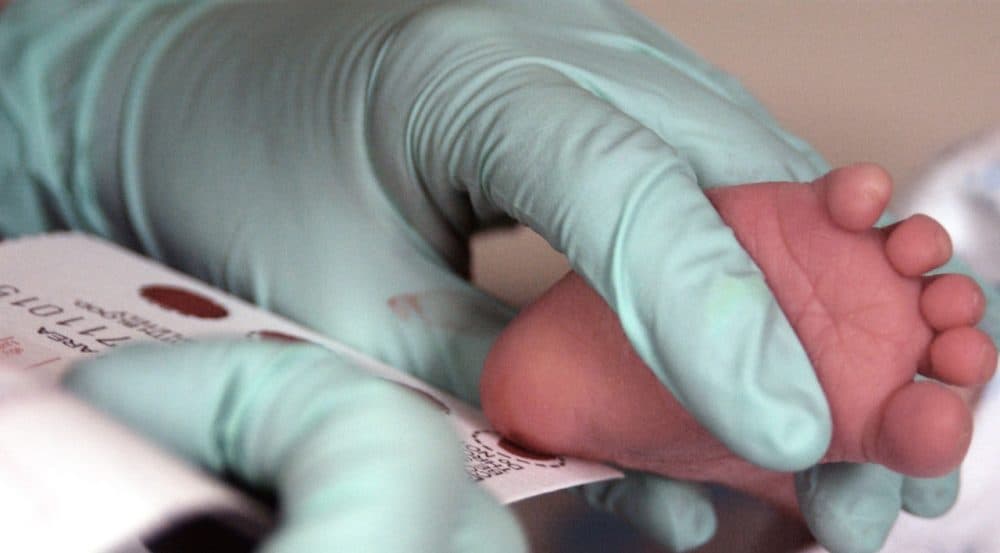Advertisement
Investigations Show Required Blood Tests Slow, Others Dangerously Flawed
Resume
Every newborn in the country is required to submit to a routine heel-stick blood test, which is supposed to be sent to a state lab, analyzed and reported to families and physicians within 24 hours. The tests are so important the the Centers for Disease Control calls them "one of the nation's most successful public health programs," in how they can detect diseases that could otherwise cause severe developmental disabilities, illness or death. But what happens when the results are not delivered within the required time frame?
Investigative reporter Ellen Gabler explored that question in her Milwaukee Journal Sentinel series "Deadly Delays" in 2013.
"The great thing about this testing is if these disorders are caught, they're very easily treated in most cases," she told Here & Now's Peter O'Dowd, but "infants have actually died and suffered brain damage and severe disabilities because of screening delays." Her shocking findings sparked "almost immediate change" in how some hospitals and states handle their testing, as they changed their systems to maximize efficiency and hold hospitals accountable.
That series led Gabler to delve more deeply into all routine blood testing and was the impetus for a second investigative series titled "Hidden Errors," which showed that issues in the system put patients at risk.
Lab tests "influence about 70 percent of medical decisions, for treatments big and small," but Gabler found that the private accrediting organizations that oversee most medical labs "fail to cite serious violations," so improperly calibrated machines, expired testing chemicals and blood, and other unsafe situations go unwatched and unpunished.
Wide-scale changes have yet to result from the second study, so for now, Gabler encourages patients to advocate for themselves in cases of blood testing. "If something doesn't seem right, if something doesn't make sense to you, get another test," she advised.
Guest
- Ellen Gabler, investigative reporter and assistant editor at the Milwaukee Journal Sentinel. She tweets @egabler.
This segment aired on December 30, 2015.